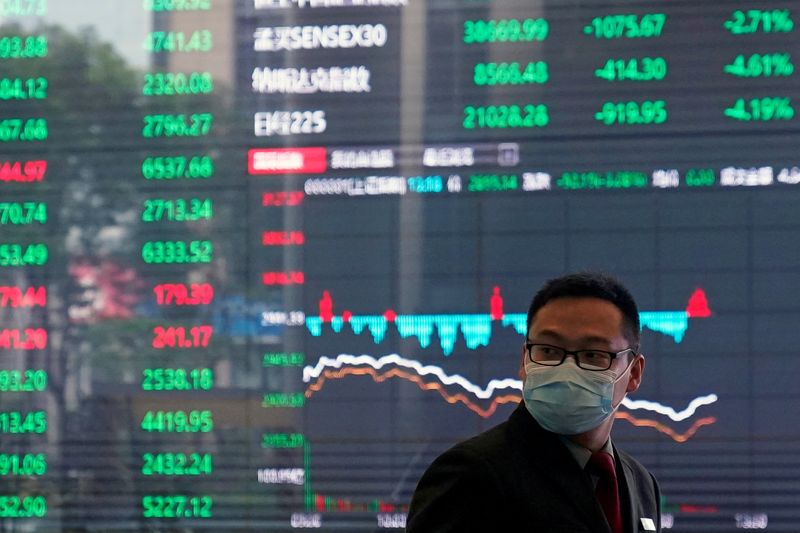Investing.com -- Most Asian stocks fell on Wednesday amid persistent fears of an economic slowdown this year, although technology-heavy indexes were aided by consensus-beating results from major U.S. firms.
Hong Kong’s Hang Seng index was the sole outlier for the day, rising 0.7% on gains in U.S.-exposed technology stocks such as Alibaba Group Holding Ltd (HK:9988) (NYSE:BABA) and Baidu Inc (HK:9888) (NASDAQ:BIDU).
While Wall Street indexes closed lower on Tuesday, first-quarter results from Microsoft Corporation(NASDAQ:MSFT) (NASDAQ:MSFT) and Alphabet Inc (NASDAQ:GOOGL), released after the bell, beat market expectations.
The two stocks also rose in aftermarket trade, as the results highlighted less pressure on mega-cap technology earnings from rising interest rates and high inflation.
Other technology-heavy Asian indexes also saw relatively lower losses, with South Korea’s KOSPI trading flat, while the Taiwan Weighted index lost 0.3%. India's BSE Sensex 30 and Nifty 50 indexes were also flat in early trade, aided by strength in heavyweight technology stocks.
But broader Asian markets fell on Wednesday as growing fears of a U.S. recession this year largely eroded sentiment towards risk-driven markets. Fears of a banking crisis were also revived by soft results from First Republic Bank (NYSE:FRC), which flagged plummeting deposit levels.
Focus is now on U.S. GDP data due on Thursday, which is expected to show that growth slowed in the first quarter.
Risk-heavy Southeast Asian markets fell the most, with Thailand’s SET Index and the Philippine Composite down 1.1% and 0.8%, respectively.
China’s Shanghai Shenzhen CSI 300 and Shanghai Composite indexes fell 0.2% and 0.3%, respectively, amid continued concerns over an uneven economic recovery in the country. Focus is now on data on Chinese industrial profits, due on Thursday to gauge the state of the manufacturing sector, which has struggled to recover despite the lifting of anti-COVID measures.
Australia’s ASX 200 fell 0.1%, as inflation data showed that price pressures remained sticky in the first quarter of the year - a trend that could invite more interest rate hikes by the Reserve Bank.
Japan’s Nikkei 225 index fell 0.7%, although the index fared much better than its Asian peers this week as Bank of Japan Governor Kazuo Ueda reiterated his intention to keep policy ultra-loose in the near-term.
Focus is now on an inflation reading, as well as a BOJ meeting on Friday to gauge when the central bank could begin tightening policy later this year.
